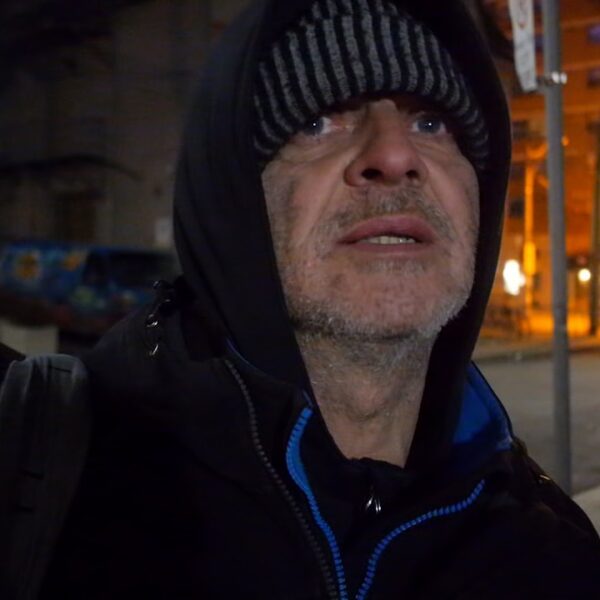In Canada, much like in the United States of America, media serves as the primary source for most people’s homeless education and news. Unfortunately, but also unsurprisingly, an investigation into Canadian news sources shows that “homeless people are excluded from full participation both in defining and finding solutions to their problems.”
Furthermore, Canadian media repeatedly portrays people experiencing homelessness “as legitimate objects of scrutiny, regulation, and control” rather than as people worthy of equal rights to freedoms.
Homeless Hub recently published the study “Representations of Homelessness in Four Canadian Newspapers: Regulation, Control, and Social Order.” The study featured the findings of Ph.D. holder Barbara Schneider of the University of Calgary, who specializes in media representations of homelessness. Fellow academics Professor Darrin Hodgetts and Professor Kerry Chamberlain, who excel in qualitative research and cultural studies, also contributed to the study.
According to these professionals, news media is primarily to blame for many misunderstandings regarding our neighbors without walls. But you don’t have to take them at their word. The public’s opinion, largely reflective of this negative portrayal, speaks volumes.
When Canada Speaks, It Speaks Ill of People Living Without Homes
In 2011, The Salvation Army funded a continuously running research program to examine public opinion on poverty and determine how well that opinion lined up with the facts.
One of the studies, entitled “Canada Speaks,” showed that what Canada has to say about its homeless population is not only negative but also emblematic of what many news corporations have put into print on the subject. Indeed, everyday people are merely echoing the media’s sentiments.
According to the findings, the following data emerged:
- More than a third of housed Canadians fear homeless people.
- Almost half of all survey participants, or 40% to be precise, held strong to the misguided opinion that homelessness is a choice. Nearly one in five respondents claimed that the person experiencing homelessness was at fault for their situation.
- A full 30% of interviewees were adherents to the “bootstrap theory,” the belief that hard work is the only tool you need to dig yourself out of the hole of homelessness.
- As a result, a staggering 43% of all Canadians, nearly half the general housed population, shunned the very thought of handing homeless people money on the street, regardless of how wrong the above-listed opinions are.
To shed a little light on this incredibly dark subject, here are some cold, hard truths about homelessness that counter these nefarious beliefs.
- Those who live in constant fear of unhoused individuals would be wise to learn that homeless people are more likely to be victims of violence than they are to be aggressors.
- How can homelessness be a choice if hundreds of babies are born into it, and thousands of young people are forced onto the streets due to abuse, illness, and unemployment? How can the problem be rooted in personal failure if all its leading underlying causes appear to be structural?
- Suppose it was possible to dig oneself out of the desolate state of homelessness by merely working harder. Then why is it that a Canadian worker earning less than $70,000 per year can’t afford to rent a one-bedroom apartment in 91% of cities nationwide? A minimum wage earner would need to work a whopping 112 hours per week to afford a two-bedroom apartment anywhere in the country. Given the circumstances, working harder is hardly a valid solution.
On the bright side, this same study concluded that 93% of Canadians concur that nobody, for any reason whatsoever, should have to endure homelessness. The misunderstanding is not what’s written in the survey results but in what is between the lines.
Bad Press and Inconsistent Media Coverage are Largely to Blame for the Public’s Misunderstanding of Homelessness
In The Journal of Sociology and Social Welfare’s lengthy expose, researchers determined that several key newspapers portrayed members of Canada’s homeless communities in a stereotypical, negative, or otherwise inaccurate light. Some key trends shown in the data were as follows:
- Stories about homelessness placed a statistically higher emphasis on “individual deficits and deviance” than on structural issues. This partly explains why so many Canadians wrongly believe that most people experiencing homelessness are struggling due to their shortcomings. Most article samples heavily downplayed the structural and societal shortfalls that contribute to homelessness.
- More than 70% of quotes in articles were derived from sources who were not experiencing homelessness. This effectively removes the homeless persons’ voice from their narrative and allows other “experts” to paint an often-incomplete portrait instead of an actual, real-life account.
- Due largely to being written out of their own narrative, unhoused Canadians are excluded from the solution process and the political arena. Their lives are left to the domiciled people armed with a slew of misinformation. Their misguided opinions are what eventually become the official policies. Hence, the vicious cycle continues on repeat.
Study Authors Call for Media Activism
In closing, the authors of this study are urging the media to reframe the current narrative on homelessness for the sake of social justice and reform. The paper suggests that “Journalists could write differently, audiences might think differently, and policymakers might then respond differently.”
Given the increasingly heavy influence that all media plays in our lives and minds, the above scenario is entirely feasible.
Get the Word Out by Talking to Your Representatives about Homelessness
With newspapers in digital and physical circulation, TV shows and Tik Tok videos keeping us all online, social media outlets promoting a never-ending cycle of social justice movements, and the clock on homelessness ticking by the minute, there’s never been a better time to speak up for our neighbors without walls. Contact your local representatives today.













